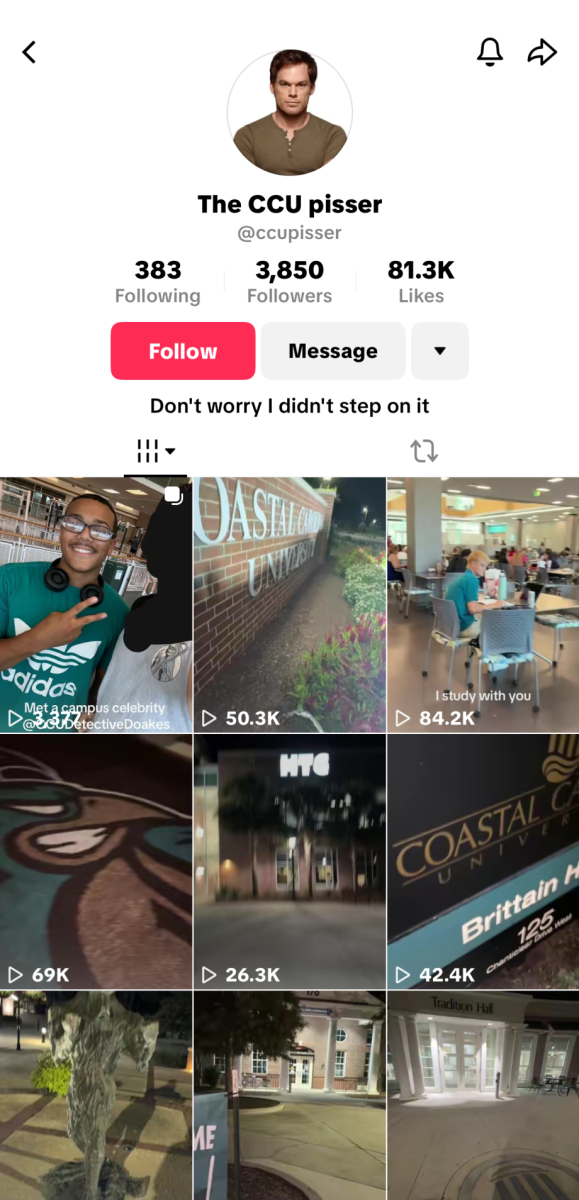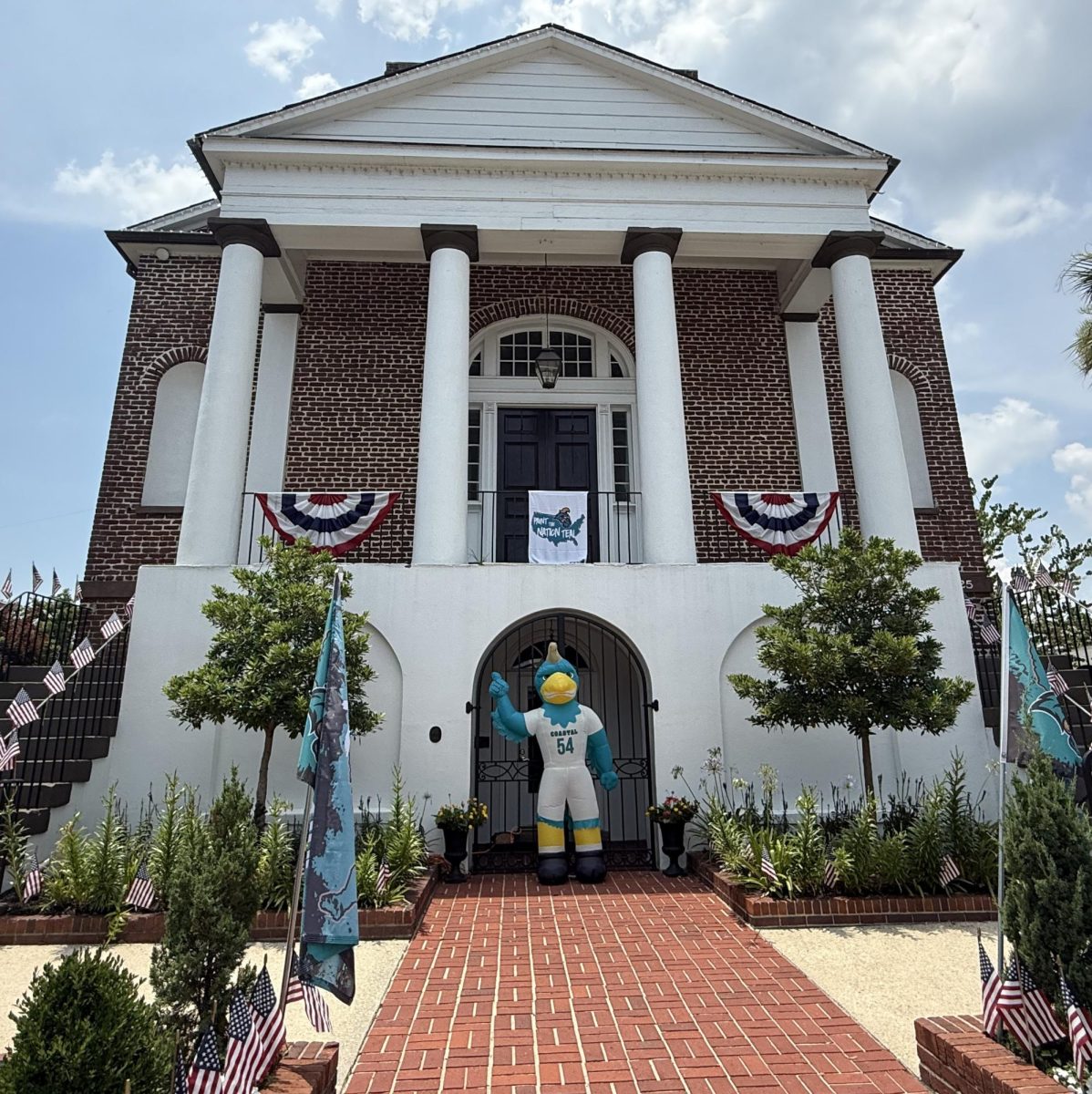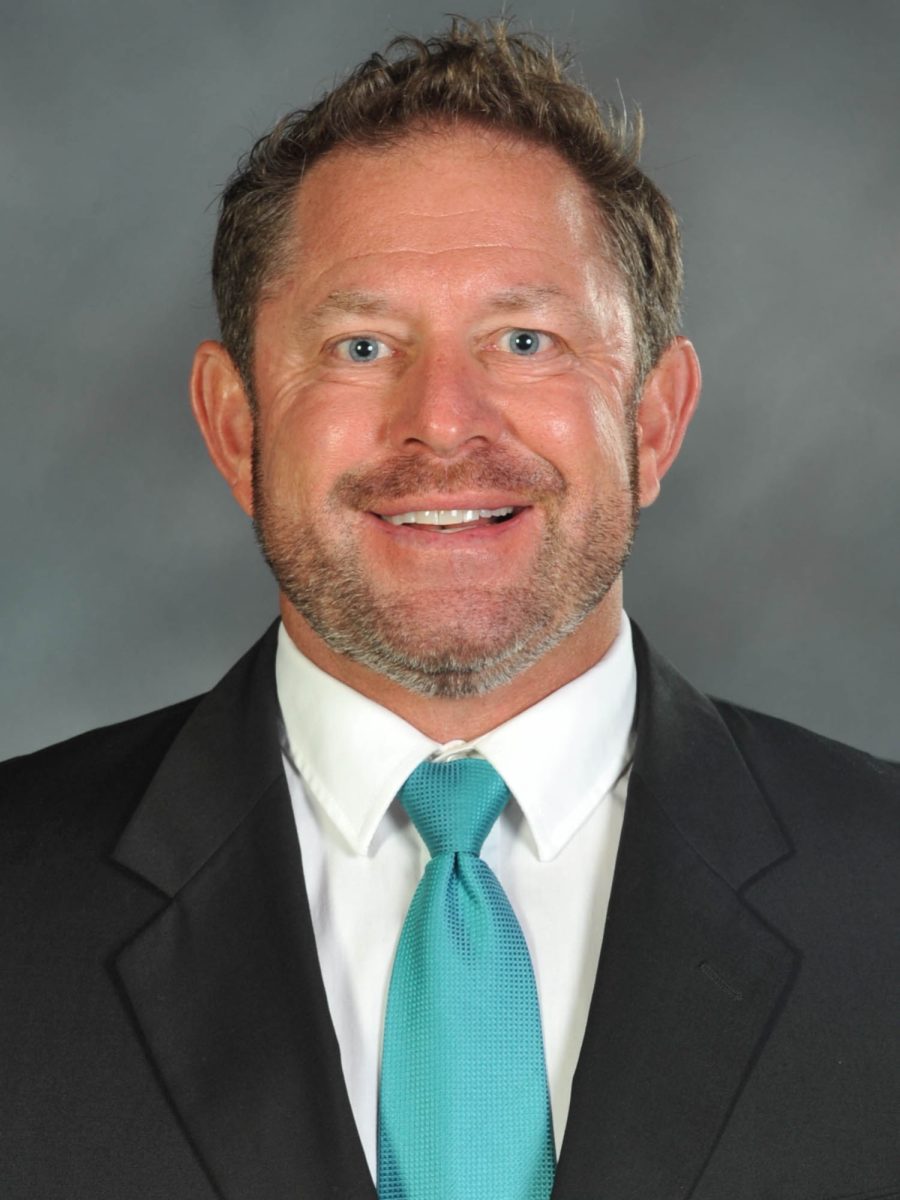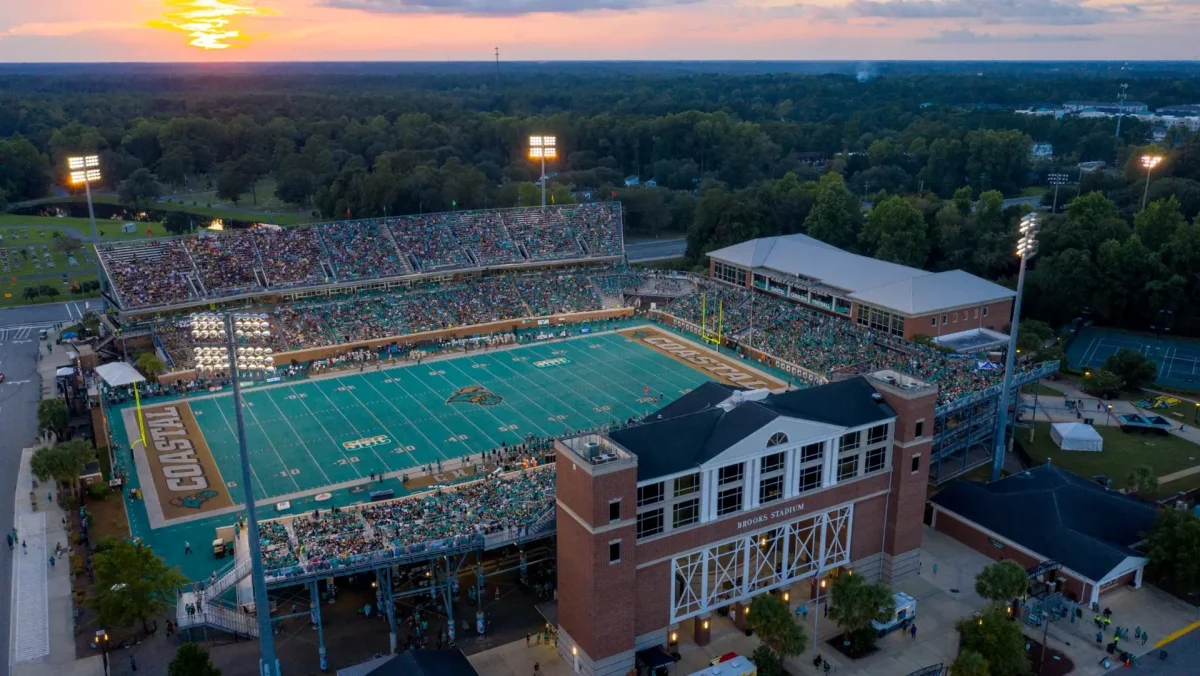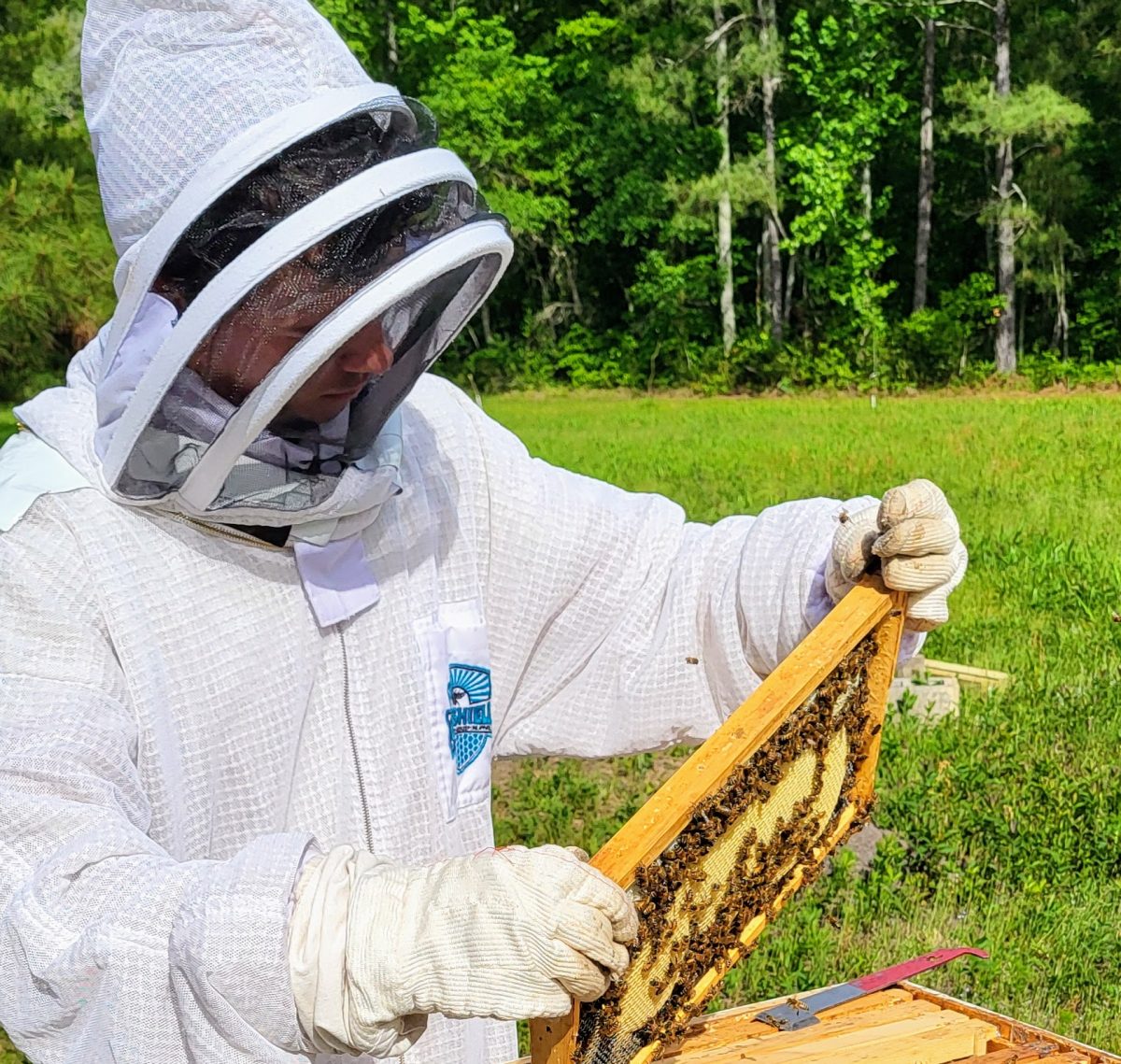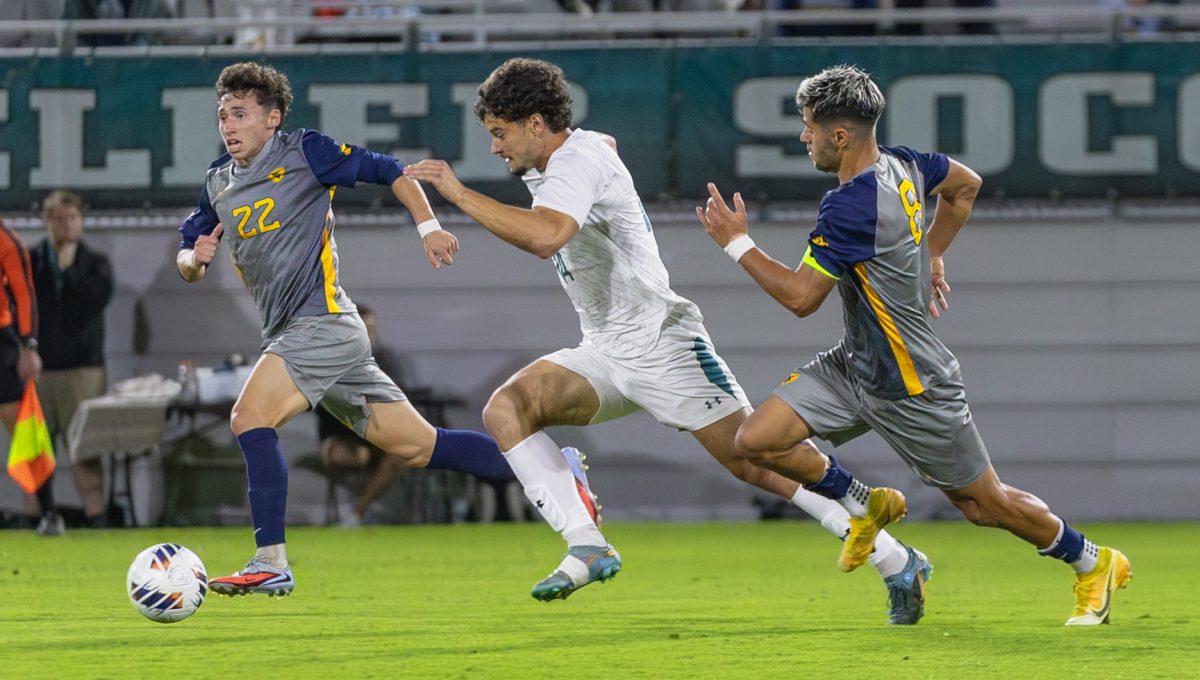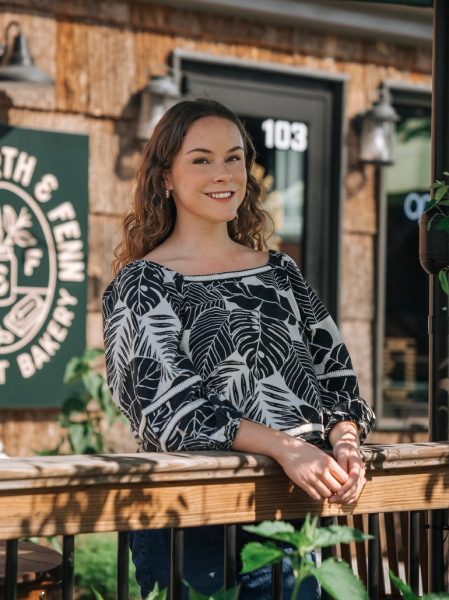Coastal Beekeeping Club is kicking off their start this fall with hopes to share the joy of beekeeping and the importance of the fuzzy, friendly pollinators with the community.
Off to a focused start, the beekeeping club hopes to gather enough support to eventually build a campus apiary. Until then, they are planning on having bi-weekly meetings on campus, with occasional off campus trips to local apiaries. There will be an opportunity this fall for students to take a virtual course to learn about beekeeping and earn their beekeeping certificates.
Co-founders of the Coastal Beekeeping Club, seniors Martin Johnstone and Savannah VanderLind met and created the club while in a sustainability class last spring. Johnstone, a sustainability and coastal resilience major, had the idea for a beekeeping club while working on a semester-long project, and VanderLind, a marine coastal environmental science major, came on board to help create it.
“The goal was to create a project that you focused on all semester that was sustainable. My project was bringing sustainable bee keeping to Coastal to sort of teach students about the art of beekeeping and how sustainable it is for our agricultural systems,” Johnstone said.
The club gained momentum when the co-founders connected with CCU chemistry professor Drew Budner, Ph.D., who is now the club faculty sponsor.
Budner proposed the idea of an apiary independently of the club before being introduced to Johnstone and VanderLind. While teaching a food chemistry course, he wants to establish a connection between local honey and its chemical composition. Budner explained that supporting an apiary on campus would help him do just that, and with the possibility for more.
“The beekeeping club would be primarily responsible for maintaining the apiary, but it would also have sustainability and research potential. There’s also a possibility, depending on how the apiary thrives, to produce honey for sale,” Budner said.
Johnstone points out that other major colleges in the area including University of South Carolina, Clemson University and University of North Carolina Wilmington all have honeybees on their campus. He hopes that raising awareness and building interest in bees will allow Coastal to have hives on campus as well, creating more hands-on learning opportunities and a new way to learn about sustainability and agriculture.
Another crucial member of the Coastal Beekeeping Club is Mastin Greene, whom members refer to as their “Bee Mentor.”
Greene is a member of CCU’s horticulture and groundskeeping staff who happened to pick up the hobby of beekeeping during the COVID-19 pandemic in 2020. He wants people to understand honeybees and to not be afraid of them.
“No native species is as numerous and hard working as the European honeybee… bees are very nonaggressive,” Greene said.
He went on to explain that honeybees are only aggressive when protecting their hives, which are also their homes.
“They don’t want you in their home, which is why you put the suit on and use smoke when you go into their home,” Greene said. “When bees are feeding and drawing nectar from a garden or some flowers, they’ll get away from you. There they have nothing to defend.”
Johnstone summed up the Coastal Beekeeping Club mission as an educational experience of sustainability and the nature of bees themselves.
“Our main goal is to teach the next generation about the importance of beekeeping and its role in sustainable agriculture. It’s pretty complex when you get into it, but we just want to educate anyone who is willing and eager to learn about it,” Johnstone said. “Bees are not out to get you like they are often made out to be.”
Coastal Beekeeping encourages students to attend Organization Kickoff (OK) Day on Monday, Aug. 18 from 10 a.m. to 1 p.m. to learn more about the club and how to sign up for the course, as well as follow their Instagram and Facebook page for updates.

